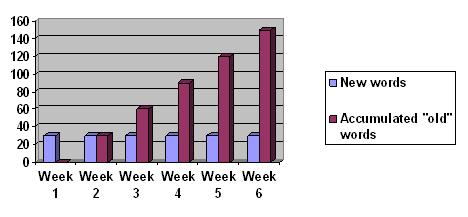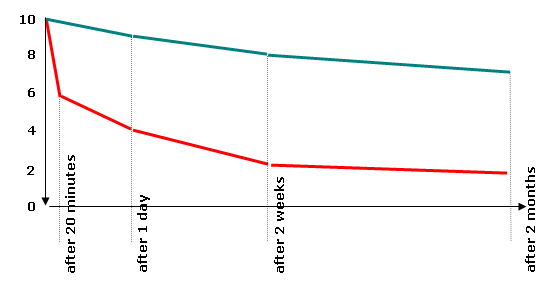|
Guide to building vocabulary |
||||||||||||||||||||||||||||||||||||||||||||||||||||||||||||||||||||||||||||||||||||||||||||||||||||||||||||||||||||||||||||||||||||||||||||||||||||||||||||||||||||||||||
|
Table of contents
By clicking in the margin (on your left!),
you will get back to this table of contents.
|
 |
|||||||||||||||||||||||||||||||||||||||||||||||||||||||||||||||||||||||||||||||||||||||||||||||||||||||||||||||||||||||||||||||||||||||||||||||||||||||||||||||||||||||||
|
Introduction
This guide has been laid out in line with our belief that improving your learning requires both understanding and learning by doing. We suspect that it contains a number of words, mainly academic words, that are unknown to you. We have chosen some 60 such words to be used for intensive study, as part of your practical work. As you have probably noticed already, an asterisk (*) indicates that you can hover your cursor to get a word explanation. The explanation is quite simple and only aimed at helping you understand. However, we will take you back to those words for more intensive work, e.g. effective dictionary use and word analysis.
Key 1 - Focus on concrete goals As a self-reliant learner you naturally start by considering your goals. There are two very basic questions that should come to mind:
Before you can answer those questions and set your concrete goals, you have two answer two other questions:
1.1 Define what you mean by a word Would you say that to fly is one word and a fly is another? And what about flew, flown, flying, and flier? Modern vocabulary researchers talk about word families - with a family head word and closely related words (inflected and derived forms). There is no definite rule for what words should belong to the family. Word families tend to become larger as the learner increases her vocabulary and her feel for word formation. Let's take fly, strong, and person as examples:
If you count all the inflected and all the derived forms and include both obsolete words and modern technical terms there are more than a million words in the English language. The biggest dictionaries contain more than 500,000 entries. Webster's Third New International Dictionary contains around 114,000 word families, excluding historical words and proper names (Goulden, Nation, and Reed, 1990). New words are added to a language all the time, especially technical terms. 1.2 Define what you mean by knowing a word In his book Learning Vocabulary in Another Language (ISBN 0 521 800927), Paul Nation estimates that by the time a native speaker is 20 years old, he or she 'knows' 20,000 word families. Knowing a word at the most general level, according to Nation, involves form, meaning, and use. Here is what you should be able to do:
1.3 Decide how many words you need The average student in Sweden seems to have a vocabulary of 5,500 on university entry. In 2002 we tested more than 12,000 CET (Chinese English Test) test takers in universities around China. On an avarage, they had a vocabulary of 4,000 words. To read authentic texts without too much disruption, you need to have a vocabulary that covers well over 90% of the words in those texts. The most common 2,000 words cover less than 80%, so that's far from enough. With 5,000 you get to 90%. Paul Nation estimates that you need to cover as much as 98% to avoid reading disruption. That is beyond the reach of non-native speakers who have to rely on the vocabulary they accumulate in ordinary school education. Having a vocabulary of five thousand word families, including the most common 500 - 1,000 specifically academic words (see below), may be satisfactory, but we suggest 7,000 word families. 1.4 Realize that some words are more useful than others The most common 4,000 words are a must! A lot of effort has gone into studying the English lexicon. If you run millions of pages of different kinds of text through a computer programme, you will be able to count how often words appear. The definite article (the) is the most frequent of all the words. It appears about 7 times per 1,000 running words and thus accounts for almost 1% of any text (point seven per cent to be more exact). Vocabulary researchers have compiled huge databases (corpuses) of texts, and they have made up what they call "frequency lists". The most common 2,000 English words are called high-frequency words, and those that are more unusual low-frequency words. Learning the most common one or two thousand words is a beginner's problem. They appear so often that when you have started reading authentic texts it is impossible to miss them. It is, of course, the unusual words that are the problem. They are the key to getting the message.
Academic words Depending on the type of text and the writer, most texts are bound to have their special vocabulary. Ordinary academic texts have a common vocabulary of 570 words (Coxhead, 1998; The Academic Word List) that are not among the most common 2,000 words, but cover so much of academic texts that you mustn't neglect them. Other specific words Most authors have their favourite words, and different genres, detective stories for example, have a number of words that are typical of that genre. By reading the first 10-25 pages of any book quite intensively you get acquainted with the writer's or the genre's particular vocabulary. In our experience textbooks used in upper secondary education are often anthologies with a typically literary vocabulary. The lack of more varied texts tends to limit the students' vocabularies. Students who are planning to go on to the university need to prepare themselves by also reading academic texts already in high school. Do you need a specific vocabulary for certain studies? If you know that you are going to study economics you should prepare yourself by including such words. Specific vocabularies, like those of economics or sociology, generally have some 1,000 "technical" words that are very useful. 1.5 Set your own concrete goals now
Key 2 - Determine your starting point Before you can plan your attack on all those words you need to identify your resources, otherwise your plan might be too unrealistic. There are four vital questions you need to ask yourself:
2.1 Assess your current vocabulary
2.2 Muster your resources Reflect on these questions:
2.3 See to it that you have enough time Reflect on these questions:
Key 3 - Make sure you are motivated
3.1 Work hard on your motivation Being able to take one's own decisions and setting one's own goals may be regarded as 'the mother of all motivation'. Finding excuses is nothing but self-deception. Research shows that most non-native speakers of English read academic texts too slowly and they understand less that they think. Lack of vocabulary is the main reason. Attending lectures in English requires good listening comprehension. A large vocabulary is necessary. Writing papers in English requires good skills in dictionary use, which should be part of you vocabulary learning skills. Making oral presentations before a group requires fluency, which in turn requires vocabulary.
Key 4 - Plan for success Clear goals, ample resources, and motivation make a sound platform for your planning. 4.1 Realize that planning is essential Keep the following in mind:
Look at this graph to see how your vocabulary (30 new words per week) builds up in the first six weeks, and consider ways of keeping your words 'alive' all the way through.
Reflect on these points before you go on:
5.1 Get to understand the basics of the learning processes Your brain knows how it wants things. So your basic strategy should be to work in a way that pleases your brain. To do that you need to understand how a human brain processes information, and you need to have a basic picture of the language learning processes. Understanding how the brain processes information is a vital step in the pursuit of learning awareness. Here are a few examples to reflect upon:
5.2 Master your three major supporting tools
5.3 Choose and process your input with care Reading
Listening
5.4 Organize your word collection
5.5 Revise, revise, revise, ... Are your revision practices good enough? The graph below shows how research seems to indicate that most forgetting occurs very soon after learning if you don't keep working on your words. After you have practised and learnt ten words it only takes 20 minutes before you have forgotten four of them! The next day you have forgotten another two. Your only consolation is that you still seem to remember two words after two months. But if you take the green path and revise (!) you will probably remember at least seven or eight after two months, maybe all. (After Ebbinghaus and others)
Your first revision should happen within 24 hours. If you have a well-structured glossary, revisions of new words don't take more than five minutes. During the next two weeks you need to revise the same words again, and then twice during the next two months. The more common the words are and the more you read, the more likely it is that you get 'accidental' revisions as a bonus. Use different approaches to get variety. 5.6 Don't forget your output
Key 6 - Check your progress continually Successful learners understand the importance of checking their progress continually, and they know how to do that. 6.1 Use basic assessment principles
Key 7 - Evaluate your routines regularly Successful learners seem to develop a more or less subconscious detection system that alerts them when things go wrong. They know how to analyze their working routines, in other words they have evaluation routines. 7.1 Use basic evaluation principles Use a log and make a note of your observations and thoughts. Learn to listen to your inner metacognitive voice. Before you start analyzing your practical learning habits go through these questions:
|
||||||||||||||||||||||||||||||||||||||||||||||||||||||||||||||||||||||||||||||||||||||||||||||||||||||||||||||||||||||||||||||||||||||||||||||||||||||||||||||||||||||||||

